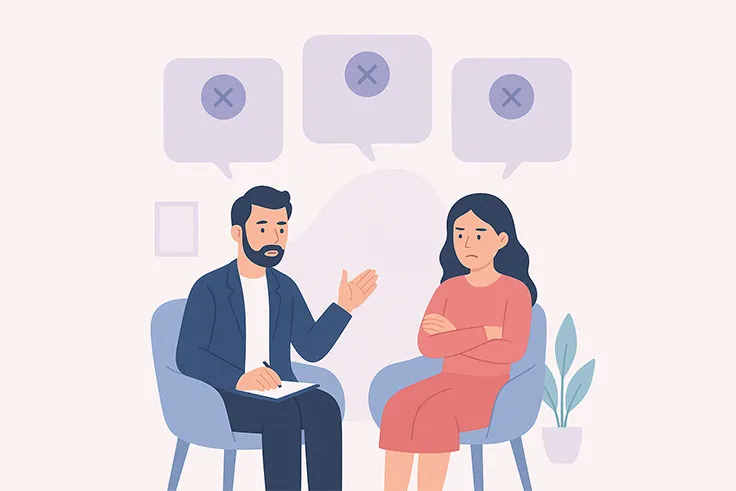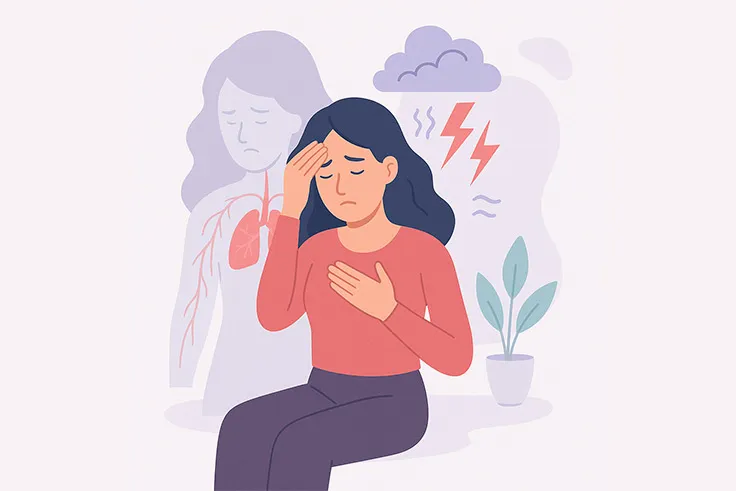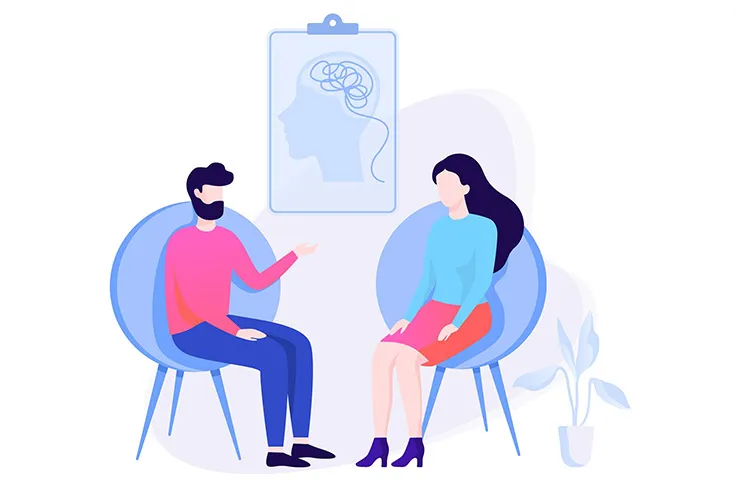
Shame
“It seems that you’re carrying a sense of shame,” my therapist said to me as I finished speaking. “Shame?”, I looked up, startled, confused, skeptical. For as long as I had been struggling, trying to wade through my thoughts, feelings and emotions, there were various expressions and descriptions I would have used, yet not once had the word “shame” crossed my mind. As we progressed through the sessions, peeling off layer after layer to unveil my not-so-glamorous belief system, it began to make more sense to me. Shame was indeed a theme that had repeated and manifested itself, time and again, in various aspects of my life.
What is shame?
Shame is a feeling or emotional state which comes from viewing oneself as bad, inferior or unworthy. It is often confused with guilt. However, there is a fundamental difference between the two: Guilt is an emotion of having done or not done something, so it is associated with behaviors, whereas shame is a feeling that we are inherently flawed, bad or undeserving. Just as we experience guilt, most of us feel shame to some degree, in one way or another. Shame can be borne out of guilt, but while the guilt may pass, shame can go deeper, and often has a more profound, toxic impact on us.
What creates shame?
Shame is felt and accumulated through various individual experiences. It could develop as a result of traumatic events, or it can be a product of how we are raised in our homes and cultures that each have their norms or codes of conduct. Religious conditioning can play a predominant role in creating shame. Social media adds a public dimension to it, taking it beyond borders as people inflict humiliation online, unleashing their opinions without inhibitions. Shaming as an act targets the person as opposed to their behavior. However, for many of us, shame originates without a clear, definite reason, creeping up on us even as we carry out our routine, mundane, day-to-day activities.
Shame can be healthy, for example, when we do something that could be morally wrong such as harming others, in which case it drives us to change our behavior. The harmful kind of shame is toxic shame because it is usually caused by unjust reasons and is rooted in traumatic experiences such as abuse, neglect, harsh criticism, or other emotional experiences which we may not even recognize as trauma. Depending on circumstance and experience, shame can either be felt for a short span of time, or it can last longer, often carrying over from childhood.
How does shame impact us?
“Shame corrodes the very part of us that believes we are capable of change” – Brene Brown.
The impact of shame is deep and far reaching. It makes us feel small, humiliated and unworthy, often hampering our ability to function efficiently in our daily lives and affecting our interpersonal relationships. As it is usually painful and debilitating to face shame, we often follow evasive emotional patterns to avoid it, using coping behaviors such as anger, addiction, perfectionism, narcissism, lying, suppressing feelings, self-neglect or self-harm. Persistent shame ultimately impacts our mental health, and it is common for a shame-ridden person to suffer from depression, anxiety disorders, and feelings of low self-worth. Women are more prone to feeling shame than men, and some studies have shown that it is most acutely felt by adolescents.
Dealing with shame
- The very first step in dealing with shame is to recognize and acknowledge it. Notice the emotion and bring it to the surface. Become aware of your triggers and observe how shame makes its appearance. Think of it as a story and give it a title, for example, “The I am unworthy story”. This technique can help to detach the mind from getting caught up in its thought and reduce the intensity of the shame, taking away its power.
- Confide in someone and share your feelings with them. Make yourself vulnerable to someone you feel safe and comfortable with. Chances are that you will find you are not alone in feeling this way. A confidante may also help you to challenge some of the self-condemning thoughts you are struggling with.
- Be your own friend and advocate: What would you say to a friend who was feeling the same way? Talk to yourself the way you would talk to them. Stop bullying yourself and replace the self-berating talk with self-compassion. One way of doing this would be to use the “balcony view” approach. Take a seat on the balcony on the floor above, and observe your thoughts and feelings, placing them on the balcony below. Change how to talk to yourself and approach the self-downing talk with empathy and kindness.
- Respond to the shame by changing the narrative. For example, replace the thought “I am bad” with “I did something bad”, or “I am a failure” to “This didn’t work out”. Doing this helps to disentangle the act from the person and helps us to recognize the fact that our acts do not define us.
- Seek professional help: a mental health professional can help to reach the heart of the problem, equip you with tools and techniques to deal with and overcome the problem.
Carl Jung described shame as a “soul-eating emotion”. However, shame will only gnaw away at us if we allow it to. The power to take back control lies within us.
In the words of Jennifer Edwards – “The beauty of life is, while we cannot undo what is done, we can see it, understand it, learn from it and change so that every new moment is spent not in regret, guilt, fear or anger but in wisdom, understanding and love”.
Submit a Comment
Your email address will not be published. Required fields are marked *
Related reading
What Not to Expect from Therapy: Dispelling Common Misconceptions
24 April, 2025
You finally booked your first therapy session, nerves and hope swirling inside you. Maybe you’ve heard that therapy can work wonders – and it can. In f...
It’s Not Just in Your Head: How Trauma Affects Your Body and How You Can Heal
23 April, 2025
Have you ever noticed aches, fatigue, or tension in your body after a stressful or traumatic experience? If so, you’re not alone. When we think of trauma...
How to Prepare for Your First Therapy Session: A Beginner’s Guide
5 March, 2025
Choosing to begin therapy is a courageous and empowering decision. It signifies your willingness to invest in your mental and emotional well being, it’s ...





